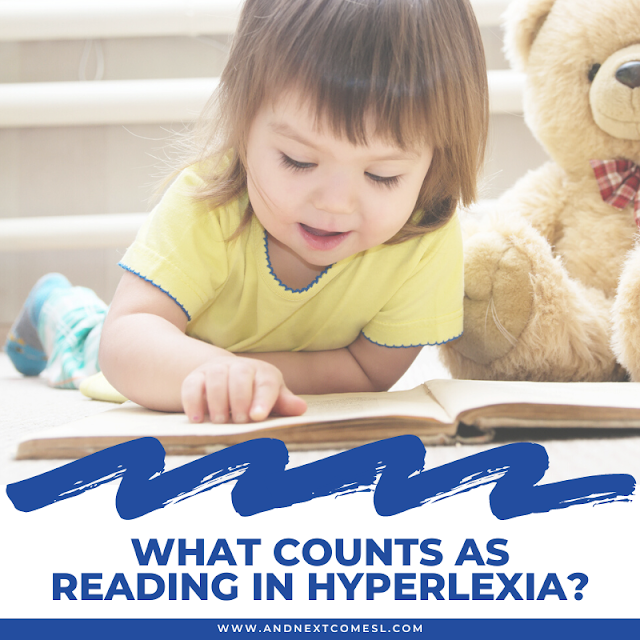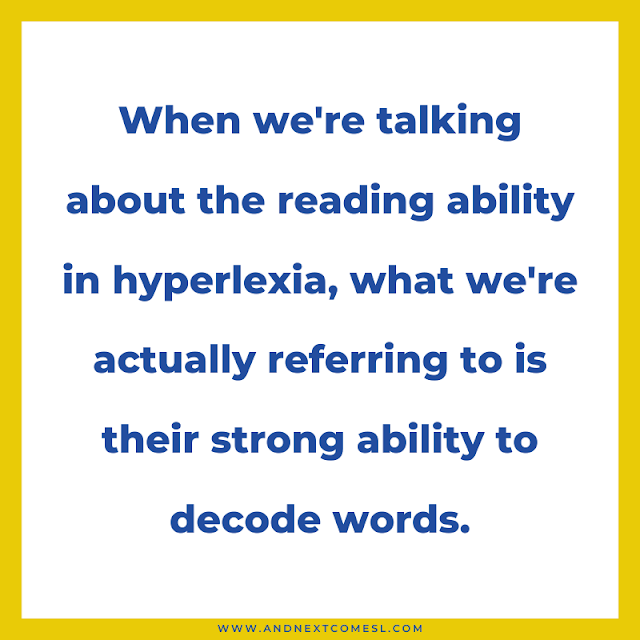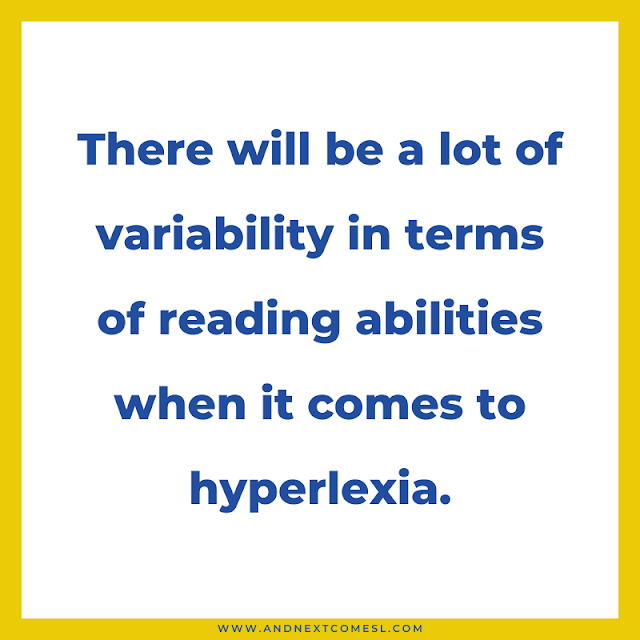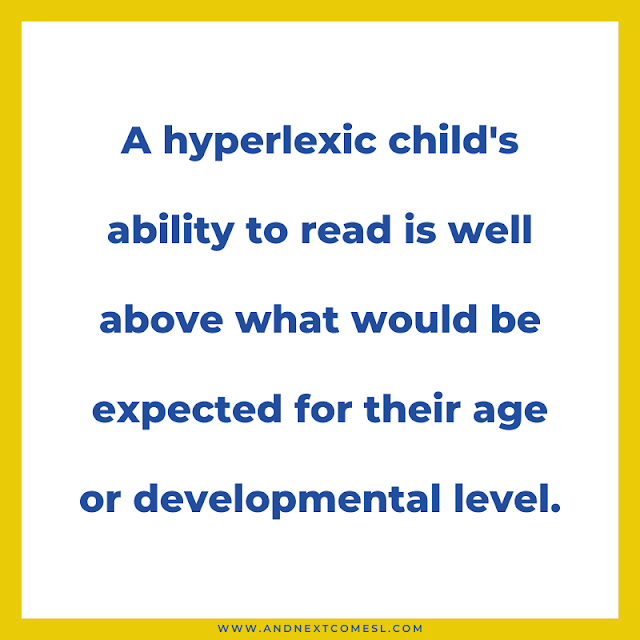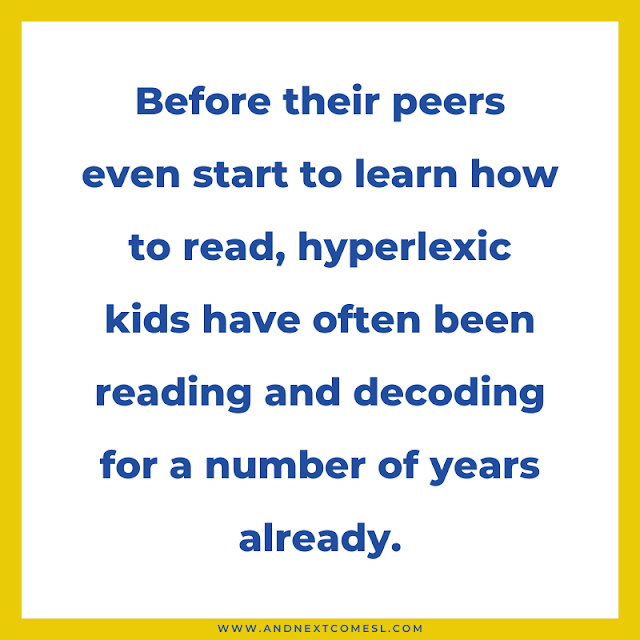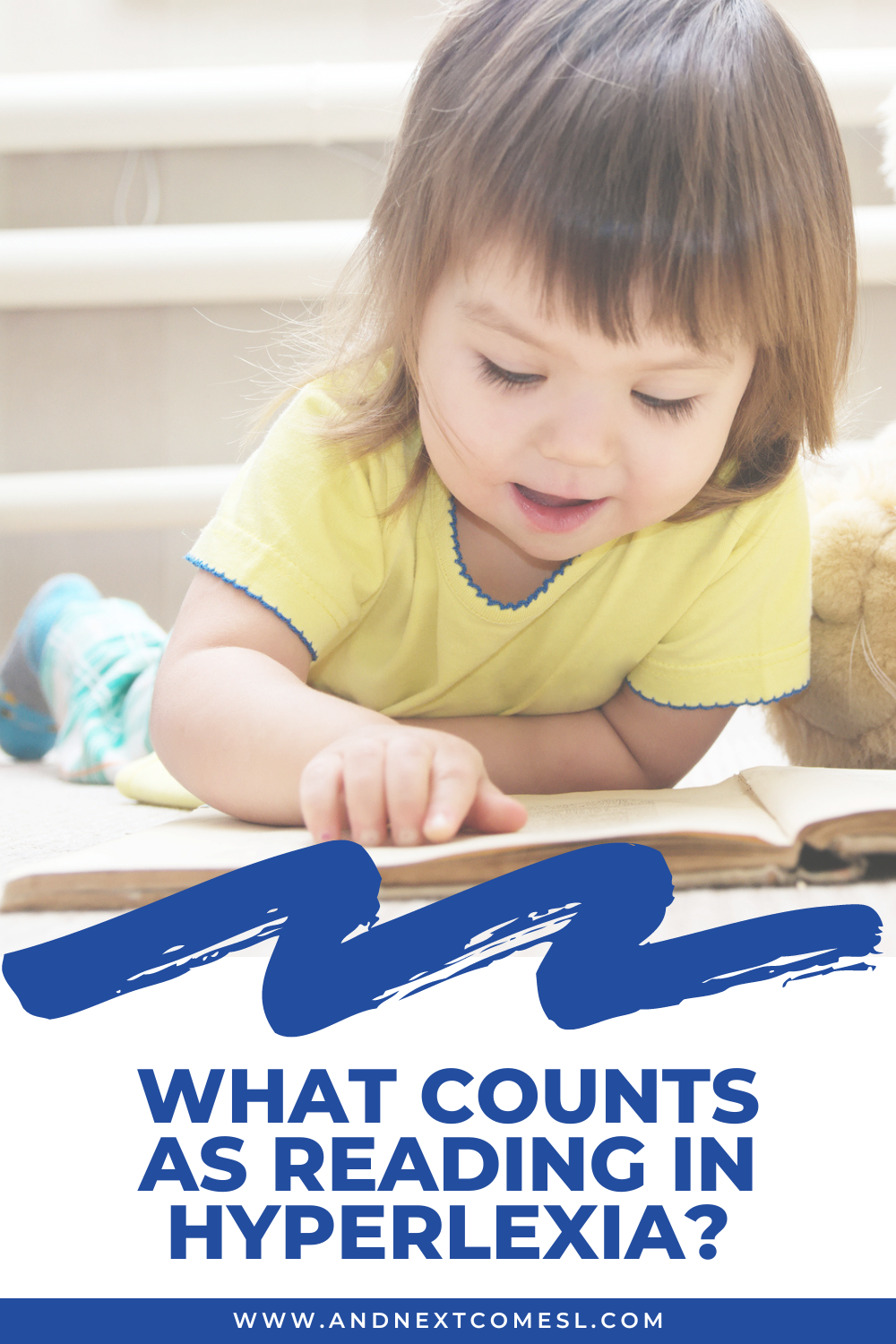If you're familiar with hyperlexia at all, then you already know that one of the key traits is the precocious reading ability.
However, what counts as reading in hyperlexia?
Are we talking reading fluently? A couple of words? Simple words? Complex words?
How much does a toddler or preschooler need to be reading in order to be considered hyperlexic? Well, that's what we're going to examine below.
A Quick Note About Reading & Hyperlexia
Before we begin, it's important to note that there are many components to reading. There's comprehension, fluency, phonics, and so on. I don't know them all as I'm not a reading specialist or expert. That's not my wheelhouse. Hyperlexia is.
But, when we are talking about the reading ability in hyperlexia, what we're actually referring to is their strong ability to decode words.
For a quick definition, decoding is the ability or process of taking a written word and translating it into speech. It is a key part of learning to read, but it's only one part of the reading process.
So please keep in mind that when we are talking about reading below, we're referring to the word decoding ability and not reading for meaning (i.e., comprehension) or any of the other components of reading.
And, don't forget that reading in hyperlexia happens spontaneously and is self-taught. So keep that in mind as well.
A Look at What Counts as Reading in Hyperlexia
Now, obviously, there will be a lot of variability in terms of reading abilities when it comes to hyperlexia. Some will be able to decode sooner, faster, and/or figure out complex words they're never seen before, while others might decode fewer words, simpler words, and/or at a slightly slower speed.
So that means that some hyperlexic toddlers might be reading a few words, here and there, while others are reading full sentences or entire books, cover to cover.
The main thing to remember, though, is that a hyperlexic child's ability to read is well above what would be expected for their age or developmental level.
We don't expect two or three year olds to be able to read a full book, a full sentence, or even a handful of words. So any type of decoding or reading ability discovered at age two or three, for instance - even if that's reading just a handful of words - is above what would be expected for that particular age and could be considered hyperlexia.
To dig a bit deeper, in a 1968 paper, Silberberg and Silberberg (they coined the term hyperlexia by the way!) noted that, "children are designated as hyperlexic if their reading score is one year above expected level in the first three grades and 1.5 years above expected word recognition level in the fourth, fifth, and sixth grades." (source)
However, Richman and Kitchell (1981) used a two year discrepancy for children in grades two or higher. Grigorenko et al. (2002) also stated that there had to be at least a two year discrepancy. (as discussed in Hopper, 2003).
Also, consider the fact that most of a hyperlexic child's peers won't start reading or decoding until anywhere from ages five to seven, or even later. And that's usually after they have been explicitly taught how to read (unlike our self-taught hyperlexic readers).
In other words, before their peers even start to learn how to read, hyperlexic kids have often been reading and decoding for a number of years already.
So really the presence of any kind of decoding or reading ability at two, three, and four, in particular, is going to be higher than expected for their age or developmental level and could be considered hyperlexia. Obviously, other traits have to be in place in order for it to be hyperlexia versus just precocious early reading, but that's a topic for another blog post though!
🔎Is it Hyperlexia?
You've seen the signs: the letters, the early reading, the unique way they learn. Now to find out if hyperlexia is the name for what you've been seeing and finally make sense of it all.
A Summary of What's Classified as Reading in Hyperlexia
To summarize, reading in hyperlexic toddlers or preschoolers can look like:
- Reading a handful of words, either simple (e.g., cat, dog, or house) or complex (e.g., dodecahedron or pterodactyl)
- Reading nonsense words
- Reading full sentences
- Reading entire books
- Reading in more than one language (yes, some can!)
- Reading words or books they've never seen before
- Or a combination of any of these
Hopefully this helps you better understand that there will be a lot of variability in terms of reading ability in the early hyperlexic years. But also helps you recognized that any type of decoding ability that is well above what should be expected for that age or developmental level will qualify as reading in hyperlexia.


